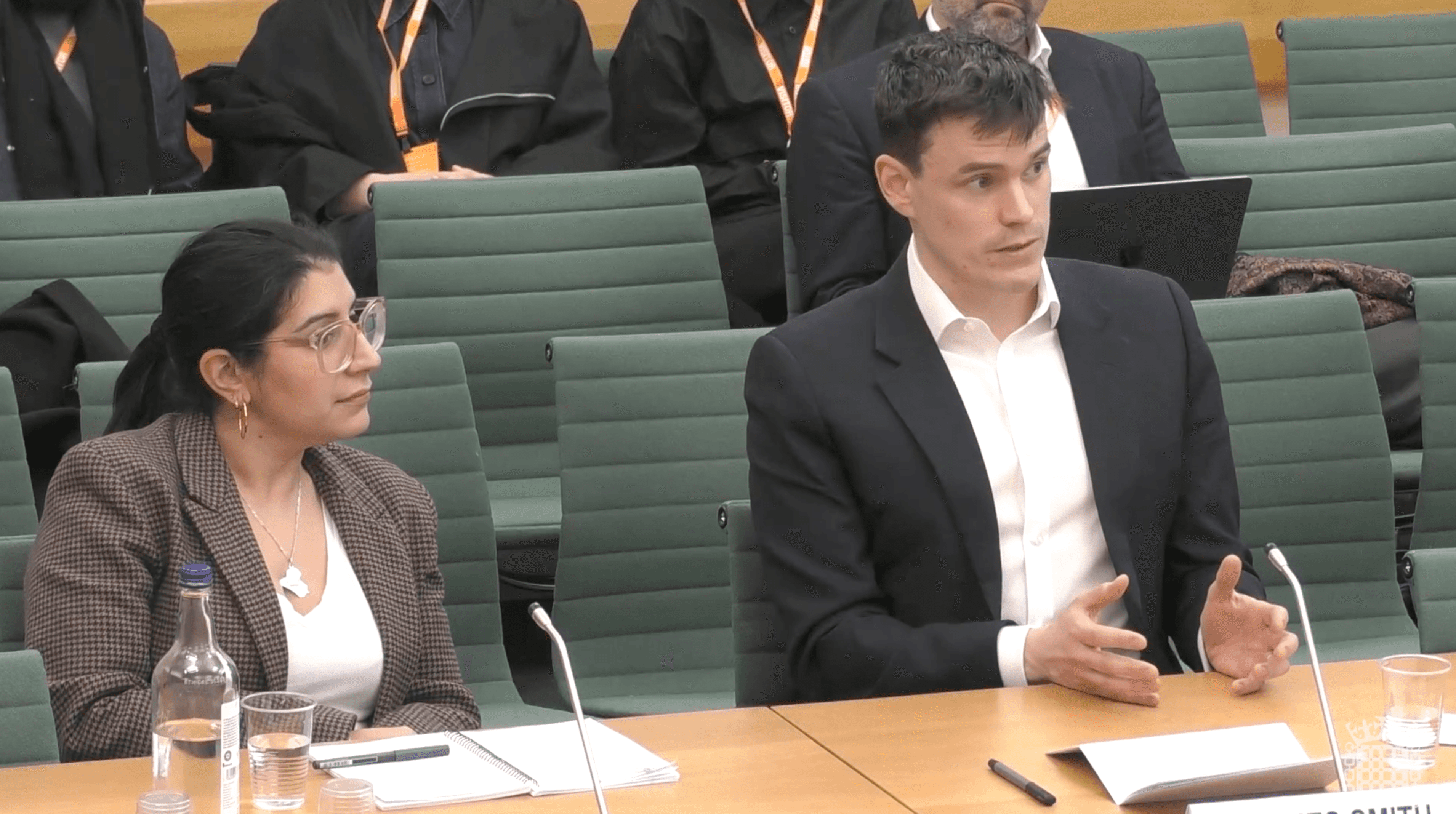The win–win for UK copyright law: our Copyright and AI Consultation response
Matt Hervey · Head of Legal & Policy
24 March 2025
James Smith, CEO of Human Native, giving evidence to the Culture, Media and Sport Committee and Science, Innovation and Technology Committee on the future of Artificial Intelligence (AI) and copyright law
Training AI on creative content is a pressing but divisive challenge for the UK Government. A Government consultation on TDM (and other copyright and AI issues) received over 13,000 responses and triggered high-profile campaigning, including coordinated front pages declaring “MAKE IT FAIR” and an album of empty recording studios called “Is This What We Want?”.
Almost all attention has focussed on a controversial proposal for a broad “text and data mining” exception.
But there is a win–win for creatives and AI developers: the UK Government should help unlock content licensing.
The text and data mining controversy
Creatives are concerned about the use of their works without compensation. AI developers, in a hyper-competitive environment, will train their models in whatever country gives them access to the most training content at the lowest risk and cost.
The current focus on text and data mining, opt-outs and transparency is unlikely to help for rightsholders, AI developers or the UK economy:
The proposed text and data mining exception is less permissive than other jurisdictions and will not attract AI developers to the UK. In any case, copyright law is only one factor in where AI developers locate. For example, the UK’s electricity costs are also a major barrier.
Opt-outs will be a burden for rightsholders and no amount of transparency will enable most rightsholders to enforce their rights in the UK if AI companies train elsewhere and if the damages available in the UK do not justify the costs of litigation.
The UK Government may not be able to find a compromise that is acceptable to stakeholders.
The licensing solution
There is a win–win for rightsholders, AI developers and the UK economy: use UK copyright law to remove the barriers to licensing creative content that AI developers cannot get elsewhere.
For Generative AI, we need to move from the “Napster” era to the licensing era: licensing content needs to be easier than scraping it.
We observe AI developers are focussed on improving their models by licensing high quality copyright works that cannot be scraped. They need specialist content (such as academic books) and content in specialist formats (such as stem-separated music). They need massive collections of such works. Publishers are keen to license their collections for AI training, but need help overcoming barriers, including rights clearance, privacy uncertainties and aggregating collections to reach the scale needed to train AI.
To resolve this, Human Native suggests the UK Government:
supports the creation of content collections available for licensing;
investigates new exceptions to UK copyright law to encourage the licensing of content collections;
supports collective and extended copyright licenses for training AI;
supports the development of model copyright licensing terms for training AI; and
promotes resolution of privacy uncertainties/issues that may impede copyright licensing.
By facilitating licensing under UK copyright law, the UK Government can attract AI developers to train on licensed works in the UK and foster a sustainable ecosystem for publishers, creators and performers.
Human Native's response to the consultation
You can read our full response to the consultation here.
